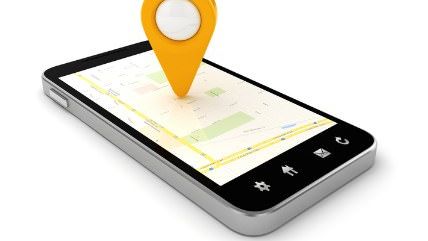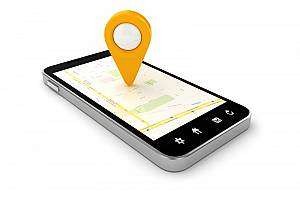Federal Court Ruling Puts Cellphone Location Data Back in Police's Hands
'Third Party Doctrine' wins again.


Last year a federal appeals court panel ruled that law enforcement agencies needed a warrant to collect cellphone location data. The U.S. Court of Appeals for the 11th Circuit said "cell site location information is within the subscriber's reasonable expectation of privacy."
Jacob Sullum previously wrote about the case. It revolved around a criminal investigation where the FBI obtained a court order (not a warrant) under looser rules to collect phone location data that connected the defendant to various crime scenes. The guy, named Quartavius Davis, was convicted of armed robbery and sentenced to life in prison. He fought the constitutionality of the FBI having such loose access to the data and convinced a three-judge panel a warrant was necessary.
Unfortunately, the full 11th Circuit Court of Appeals yesterday reversed the ruling. Sullum had previously noted the panel made its decision in such a way as to get around the "third party doctrine," the privacy exception that allows law enforcement to get easier access to personal data because it's in the hands of service providers, like phone companies, Internet companies, et cetera. The full court ruling (pdf) put the focus back on the third party doctrine, and also noted that the police didn't even actually track Davis' phone. They tracked the cell towers that were routing Davis' calls to show that he was in the general vicinity of where the crimes took place. There was also no "real-time" tracking. This was all information gathered from Davis' cell company after the fact. The majority ruled that Davis does not have an expectation of privacy for this third-party data, and the FBI followed all applicable laws to collect it.
The next stop, should Davis pursue it, would be an attempt to get the Supreme Court to consider the case. As the Wall Street Journal notes, though, this new ruling is in alignment with rulings from two other federal appeals courts, so there's no "split" for the justices to resolve as yet.
As for actual real-time cellphone tracking, I wrote earlier in the week about how the Department of Justice is considering some more transparency and actual due process (maybe) in how location tracking technology is used. Read about that here.
Editor's Note: As of February 29, 2024, commenting privileges on reason.com posts are limited to Reason Plus subscribers. Past commenters are grandfathered in for a temporary period. Subscribe here to preserve your ability to comment. Your Reason Plus subscription also gives you an ad-free version of reason.com, along with full access to the digital edition and archives of Reason magazine. We request that comments be civil and on-topic. We do not moderate or assume any responsibility for comments, which are owned by the readers who post them. Comments do not represent the views of reason.com or Reason Foundation. We reserve the right to delete any comment and ban commenters for any reason at any time. Comments may only be edited within 5 minutes of posting. Report abuses.
Please to post comments


As I noted yesterday, this is the downward spiral that our current jurisprudence that the 4A only protects you against searches and seizures if you have an "expectation of privacy." Naturally, you will search the Constitution in vain for any textual support for this jurisprudence.
The right of the people to be secure in their persons, houses, papers, and effects, against unreasonable searches and seizures, shall not be violated,
You will note, of course, that based on the idea that you have no expectation of privacy in your cell phone being tracked, there is no reason not to greenlight full-time real-time tracking of every single cell-phone in the US.
I would note that, given current GPS technology, a fully zoomed-in Google maps will show whether I am watching TV or taking a shit. But apparently, there's no expectation of privacy in your own house any more because cell phone tracking can show where you are in your own house.
FAA data indicates that GPS provides better than 3.5m horizontal accuracy (weather and other factors decrease accuracy). So unless your couch is more than 11.5 ft away from your toilet, you can't tell from GPS data if you're on the toilet or the couch.
Of course, GPS accuracy is getting better over time and in several years that may longer be true.
Try it yourself sometime. I did, and I was impressed/appalled that fully zoomed in on my house, Google maps shows where I am in my house to within a few feet.
You will note that "better than 3.5m" is completely consistent with my experience.
Apparently, I'm standing in the middle of the street in front of the building next door.
It's all about conditions. How many satellites you're tracking, the geometry etc. Cell phone location data is getting very broad in its methodology.
At any one time, your cell phone may be using tower triangulation, gps satellites or ip location if you're connected to wifi.
I have a handheld gps unit which, if it gets differential satellite tracking can tell me where I am in my house in the best conditions.
Plus, it will only get more accurate over time.
http://www.sciencedaily.com/re.....083031.htm
Start working at home with Google! It's by-far the best job I've had. Last Wednesday I got a brand new BMW since getting a check for $6474 this - 4 weeks past. I began this 8-months ago and immediately was bringing home at least $77 per hour. I work through this link,
Go to tech tab for work detail ??????????????? http://www.jobsfish.com
When the progs repeal Citizens United, this will all be a moot point. Since corporations won't have rights under such a scheme, your provider will just have to hand it over. No warrant required.
What is the differencr between a court order and a warrant in obtaining personal information? It sounds like semantucs to me but I honestly don't know.
There's a looser evidentiary standard.
The warrant is more restrictive on what is being searched, I don't believe a court order labours under such restrictions.
personal data because it's in the hands of service providers, like phone companies, Internet companies, et cetera.
I will say this again because it needs to be said. Data not contained on a hard drive or storage medium located on your person or in your home doesn't belong to you. Even if the law says it does, it doesn't.
Cloud storage, remote storage, internet storage, off shore, on shore... Doesn't matter. It's not yours and the proprietor of the data store can and will do what he wants with it.
This is why lavabit was such an excellent service and why it no longer exists.
Even if phone tracking were illegal, they'd still do it and the evidence yielded is still up to the judge as to whether or not the exclusionary rule would apply.
As I think I mentioned on another article, I wonder how long it will be before you're required to have a cell phone on your person just so they can track you, just like you're required (at least in some places, I don't know how universal it is but if the guys with badges and guns demand it it's hard to say no) to carry your driver's license even if you're not driving.
Once upon a time I would have considered such a thing tinfoil hattery. But many things I once considered so have come to pass.